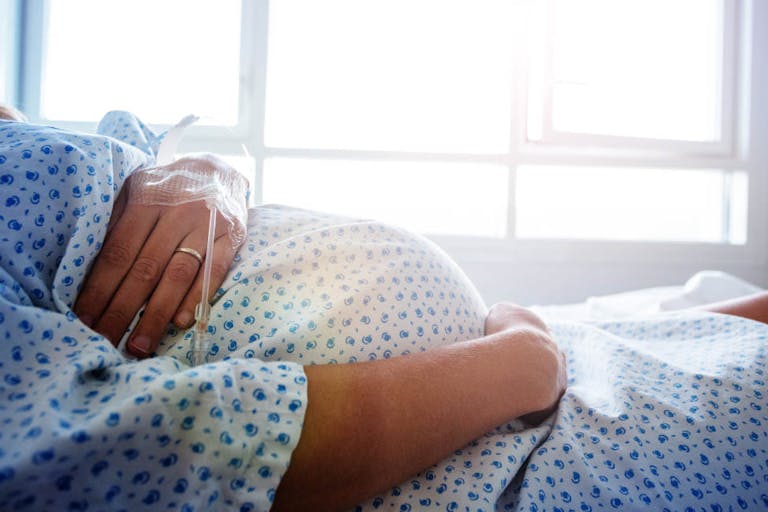
Countdown: We must stop funding abortion before America’s 250th birthday
Mark Wiltz
·
Mom goes to extreme measures to ensure hospital gives preemie life-saving care
A mom laboring at the hospital at 26 weeks pregnant was shocked to learn that the United Kingdom National Health Service (NHS) policy in her area did not provide medical care for children born before 27 weeks.
In an interview with Tyla, Asha Berzon criticized what she called a “postcode lottery” at the NHS, which determines which premature infants receive health care and which do not.
Berzon had already experienced trauma with the NHS after suffering a prior miscarriage, in which she said she wasn’t treated as if she were a human being. The experience left her overly cautious about her subsequent pregnancy. “I don’t think I told my colleagues I was pregnant until I was about five and a half months and really starting to show,” she said.
And after going into premature labor at 26 weeks, she went to the hospital, only to discover that the NHS guidance in her borough provided no care for infants born before 27 weeks. So she took matters into her own hands.
“I went into the hospital on week 26, day six,” she said. “I pretty much just [laid] on my back and stayed stationary, as a way of slowing down my labour. I was able to hold on to my son for an extra four and a bit days.”
Because her contractions would begin again every time she got up, Berzon remained on her back for days to give her son every possible chance of survival. When he was born, her son Michael weighed just two pounds, and the experience continued to be difficult, with little support for the new parents.
“I was alone from 8am to 6pm when my husband would be back,” she said. “[W]e’d then head home for dinner and come back to the hospital at 8pm until 11pm.”
And it was only because Berzon was able to hold on for those extra days that Michael was able to receive care and survive. “It was heartbreaking really,” she said. “I remember the consultant coming down from Cebu, which is [the] special care baby unit. [He] said to me that, you know, had we had seen you yesterday, we may have been having a different conversation. But now because I had technically gone 27 weeks, they would provide the baby with the medical support he needed.”
Thanks to advancements in NICU care, up to 71% of premature babies are able to survive if they’re given active care, as opposed to palliative care only. And at 26 weeks, even according to the NHS itself, the survival rate is very strong. According to a 2016 analysis, babies born at 26 weeks, despite being considered extremely premature, have an 89% chance of survival.
Though her son, Michael, was eventually well enough to be discharged, Berzon and her husband were still scared. “Michael ended up back in hospital a week later with respiratory issues,” she said. “We were so cautious, we didn’t let family visit us at all until the May 2015, nearly a whole six months later.”
Today, Michael is four and thriving, but the family has never forgotten his rough start in life.
“We try to, where possible, go back once a year on his birthday to the [premature] unit to see the staff,” she said. “If I can’t do that, I always send a donation in once a year in his name. Because I want [Michael] to know the journey that he has had and how special he is for that. But also for him to appreciate that his life started in not such a great place.”
Live Action News is pro-life news and commentary from a pro-life perspective.
Contact editor@liveaction.org for questions, corrections, or if you are seeking permission to reprint any Live Action News content.
Guest Articles: To submit a guest article to Live Action News, email editor@liveaction.org with an attached Word document of 800-1000 words. Please also attach any photos relevant to your submission if applicable. If your submission is accepted for publication, you will be notified within three weeks. Guest articles are not compensated (see our Open License Agreement). Thank you for your interest in Live Action News!

Mark Wiltz
·
Human Interest
Kelli Keane
·
Human Interest
Victoria Bergin
·
Guest Column
Oregon Right to Life
·
Activism
Kelli Keane
·
Human Interest
Bridget Sielicki
·
International
Cassy Cooke
·
International
Cassy Cooke
·
Pop Culture
Cassy Cooke
·
Issues
Cassy Cooke
·
International
Cassy Cooke
·